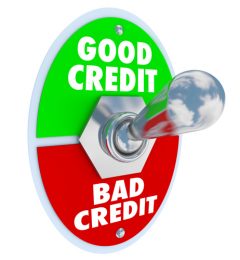You can think about your credit score as a “financial GPA”. Your credit score is composed of five main parts. About 35% is your payment history (paying on time), 30% is credit utilization (amount of credit you use compared to the amount of credit you have available), 15% is length of history (so it is not always the best idea to cancel a credit card when you pay it off), 10% is shopping for credit (those hard credit inquiries – when a financial institution checks your credit report when you apply for a loan or credit – stay on your report for 2 years; soft credit inquiries – such as checking your own credit score – do not affect your score), and 10% is mix of credit (the different types of credit such as revolving credit like credit cards, and installment credit like a car loan).
What can I do to maintain good credit?
- Never miss a payment
- Missed payments affect your credit score/report for 7 years
- Sign up for automatic payments
- Utilize no more than 30% of your credit limit
- You only need to be within this range on the date your billing cycle ends
- Utilizing 1-9% of your credit limit, is considered the best way to increase your credit score
- Remember that rewards are a bonus
- If you want to spend more to gain more rewards, make sure you are doing it responsibly and staying current on your payments
- While shopping around, find the best card for you and apply for that ONE
- Applying for more than one card can negatively impact your score because hard inquiries made by credit lenders stay on your report for 2 years
- www.nerdwallet.com is a good resource to compare and contrast different cards
How can I establish or repair credit?
- You may need a co-signer if you are under 21
- Parent or guardian
- The co-signer is just as liable to repay the debt as the borrower
- Secured card
- Requires a cash collateral deposit that becomes the credit line for that account
- Often times, this is a great option for people will poor or bad credit scores
- Time
- Don’t get discouraged if your credit does not improve immediately – it will come with time
- Stay motivated and look towards the end goal!
- Check your credit report frequently
What is a credit report?
Checking your credit report is also important for both maintaining and repairing your credit. You can think of your credit report as a copy of your transcripts, a detailed summary of your financial reliability and history of paying debts. You get three free reports annually, one from each of the credit bureaus – Transunion, Equifax, Experian. It is recommended to request one every four months to monitor any fraudulent activity or errors on your report. Go to annualcreditreport.com to view your credit report.
Checking your own credit report will not affect your credit score. However, every time a lender checks your report, it is considered “shopping for credit”, and can negatively impact your score. Finally, note the report does not include your credit score (the numerical value calculated from information in your credit file that is used by lenders and landlords to assess your “credit risk” at that time).
As always, if you have any questions or need help checking your credit report, we would be happy to help!
Shari Humbard & Hillary Williams – Peer Counselor II

